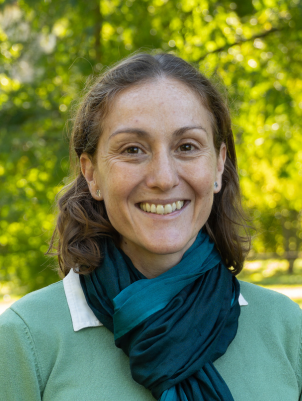Biomembranes and Lipid Flippases

For this, we apply a broad range of molecular biology, biochemistry, biophysics and advanced bioimaging techniques, based on homologous and heterologous expression systems and including the synthesis of specific lipid probes for characterizing membrane properties, protein-membrane interactions and lipid trafficking. A fundamental feature of eukaryotic cells is their compartmentalization into distinct organelles by biological membranes. Each membrane is composed of thousands of interacting lipids and proteins that are essential to basic processes from photosynthesis to the maintenance of electrochemical gradients across membranes. Many cellular membranes present an asymmetric lipid distribution that is essential for cell survival. This lipid asymmetry is generated by membrane transporters, termed flippases.
- Physiological role of lipid flippases (P4 ATPases) in plant health and development
Lipid flippases are key players in plant development, as well as in plant adaptation to adverse environmental conditions (biotic and abiotic stress). Understanding the role of flippases in these cellular processes in model plants and crops is key for the identification of elite crop varieties with enhanced stress resilience. - Lipid translocation mechanism and regulation of lipid flippases
Elucidating the molecular functioning, spatiotemporal localization and dynamics of lipid flippases helps to understand vital processes at cellular membranes and paves the way to control their activity at the cellular level. This will be instrumental in biotechnology, e.g. in engineering and improving protein production system based on eukaryotic cells, and for applications within synthetic biology, e.g. molecular bioelectronics and drug screening. - Establishing quinoa as a driver for sustainable food production
Quinoa is a highly resilient plant but performs poorly as an agricultural production system in Denmark. We aim at understanding the mechanisms that make quinoa a resilient crop and to translate this to elite crops. We also aim at understanding and modifying the mechanisms that control desirable agricultural traits in quinoa, such as seed yield, to help ensure the future food supply under increasingly challenging environmental conditions.
For students wishing to work within these topics M.Sc. and B.Sc. projects are currently available. Please contact Rosa Lopez (rlo@plen.ku.dk)
- NovoCrops (supported by NovoNordisk Fonden)
A growing world population and an increase in agricultural loses due to extreme weather conditions, have triggered the need to expand the number of plant species used for food and feed production. NovoCrops aims at the domestication of resilient wild crops for the generation of novel high-yield agricultural production systems of high nutritional value. - The mechanism of lipid transport by flippases (supported by the Independent Research Fund Denmark, Nature and Universe)
Many plant lipid flippases of the P4 ATPase family have evolved independently of their yeast and human counterparts, and many of the amino acid residues known to be involved in substrate translocation in other organisms are not conserved in plants. We aim at structurally and biochemically characterizing plant P4 ATPases to elucidate their mode of action. - High-throughput analysis of biological systems - from cells to molecules (supported by the Carlsberg Foundation - Infrastructure)
Biological systems are extremely complex, but modern advances in technology allow to test a wide range of parameters simultaneously using plates that can contain thousands of samples and can be analysed with so-called plate readers. This project aims at establishing plate-reader-based high-throughput methods to advance research in microbiology, biochemistry, and cell biology.
- Flippases
Grifell-Junyent M, Baum JF, Välimets S, Herrmann A, Paulusma CC, López-Marqués RL, Günther Pomorski T. CDC50A is required for aminophospholipid transport and cell fusion in mouse C2C12 myoblasts. J Cell Sci (2022) 135:jcs258649
López-Marqués RL, Lipid flippases as key players of plant adaptation to their environment, Nat. Plants 7 (2021) 1188–1199
Stanchev LD, Marek M, Xian F, Klöhn M, Silvestro D, Dittmar G, López-Marqués RL, Pomorski TG, Functional significance of conserved cysteines in the extracellular loops of the ATP binding cassette transporter Pdr11p, Journal of Fungi, 7 (2020): 2
Frøsig MM, Costa SR, Liesche J, Østerberg JT, Hanisch S, Nintemann S, Sørensen H, Palmgren M, Pomorski TG, López-Marqués RL. Pseudohyphal growth in Saccharomyces cerevisiae involves protein kinase-regulated lipid flippases. J Cell Sci. 133 (2020): jcs235994
- Novel crops
López-Marqués RL, Nørrevang AF, Ache P, Moog M, Visintainer D, Wendt T, Østerberg JT, Dockter C, Jørgensen ME, Torres Salvador A, Hedrich R, Gao C, Jacobsen SE, Shabala S, Palmgren M, Prospects for the accelerated improvement of the resilient crop quinoa, J Exp Bot. (2020), eraa285
Group members
| Name | Title | Phone | |
|---|---|---|---|
| Anne-Mette Bjerg Petersen | Laboratory Technician | +4535327339 | |
| Davide Visintainer | Postdoc | +4535332215 | |
| Julia Franziska Baum | Enrolled PhD Student | ||
| Richard Villagrana | PhD Student | +4535332450 | |
| Thomas Günther-Pomorski | Professor | +4535333373 |

